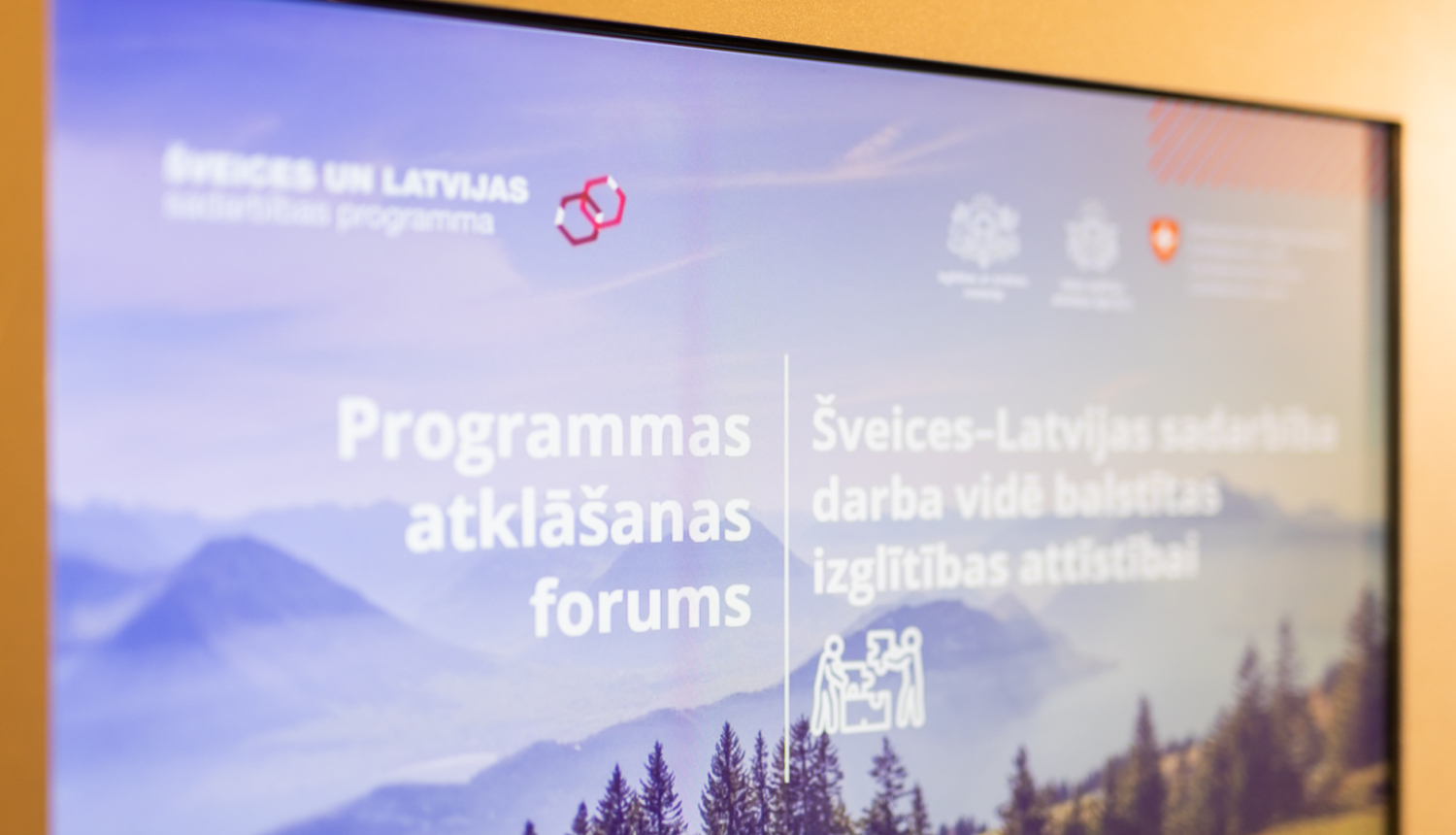In order to strengthen the sector-based vocational education approach in Latvia, using the Swiss experience, even closer cooperation between employers, vocational education institutions and public administration is needed, as well as well-thought-out structural changes in the education system.
It was the importance of this cooperation and the beginning of a new stage of vocational education development that was marked by the opening forum of the Swiss-Latvian cooperation programme "Swiss-Latvian cooperation for the development of work-based education", which took place in Riga on October 1. During the forum, a discussion was also started on how this approach could be integrated into the Latvian education system, strengthening the importance and prestige of vocational education in our country.
As emphasised by the Minister of Education and Science Dace Melbārde, these changes are taking place at a time when vocational education is undergoing a significant transformation both in Latvia and throughout Europe. "In today's world, affected by rapid technological change, climate challenges and changing labour market demands, vocational education is becoming a tool for adaptation, inclusion and empowerment. In Europe, vocational education is experiencing a real renaissance, it is no longer seen as simply an alternative to education, but as a strategic driver for innovation and social cohesion. It is also important for vocational education in Latvia to gain new prestige, as it has great potential – professional skills are the basis for future competitiveness," the Minister pointed out.
Switzerland's economic backbone is mainly made up of small and medium-sized enterprises, accounting for 99%, and it is this business structure that is one of the reasons why the country is ranked among the world's ten most innovative economies, according to the World Intellectual Property Organization's (WIPO) Global Innovation Index 2024. This system in practice implies the close involvement of employers in the preparation of employees – entrepreneurs are interested in training specialists whose skills exactly meet their needs.
Swiss dual vocational education is based on several principles: full integration of this approach into the public education system, close and horizontal cooperation between the public and private sectors, orientation to the needs of the labour market and cost efficiency. At the same time, society's attitude to vocational education also plays an important role. For this system to work, both parents and teachers must accept that "learning by doing" and "making mistakes as part of the experience" are an integral part of such a learning process.
Svetlana Riškova, Chef, Board member of the Latvian Chefs Club, President of the Latvian Bocuse d'Or Academy: "We hope that this new learning approach will help to raise the prestige of vocational education and retain young talents in Latvia. It will provide an opportunity for future specialists to acquire practical knowledge and skills in a particular company, thus both increasing their competitiveness and gaining opportunities for professional career growth in our country."
The development of a sector-based vocational education approach in Latvia means changes in the existing education system. These will include an evaluation of the existing education model, closer cooperation between schools and businesses in the development of a new model, adaptation of learning content to the needs of specific sectors, an increase in the share of sector-based learning and a more flexible approach to the acquisition of qualifications. Such changes will also require a change in the way of thinking – both in educational institutions, in companies and in society as a whole.
At the same time, this new approach will bring far-reaching benefits to all parties involved. Companies will acquire employees with the skills and knowledge that meet their needs, thereby
reducing the costs of recruiting and onboarding new employees and strengthening their reputation.
At sectoral and economic level, this approach will facilitate access to a skilled and adequate workforce, increase competitiveness in both the domestic and international markets and build a more stable, sustainable labour market. In turn, young people will gain real work experience already during their studies, become more financially independent, strengthen their professional confidence and motivation, as well as get wider opportunities for career growth. The new approach will be implemented in close links with the education system and in line with the needs of the labour market, promoting youth employment.
The sector-based vocational training approach will initially be implemented in those sectors where the expertise and experience of Swiss partners can provide the greatest support and contribution – in agriculture, mechanical engineering, energy and hospitality. Currently, in the early stages of the programme, intensive work is underway on the development of a sector-based model for the implementation of vocational education training, in cooperation with industry associations and companies. More information on the Swiss dual vocational education approach, as well as forum presentations and general information about the programme, is available on the YouTube account of the National Education Development Agency and on the programme's website. A photo gallery from the event is available here.
The implementation period of the programme "Stronger work-based learning for the improvement of vocational education in Latvia" is from April 2025 to November 2029, in cooperation with sectoral organisations and associations, higher education institutions, the Ministry of Education and Science and the State Education Development Agency.
The opening forum of the programme was organised within the framework of the Swiss-Latvian cooperation programme "Stronger work-based learning for the improvement of vocational education in Latvia".





